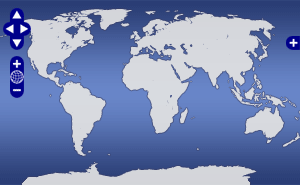Seismic:Navigation
Single-channel seismic field data in the Gulf of Mexico, acquired by the R/V Longhorn in 1992 as part of the Gulf Probe VI project (92G06)
A cooperative, marine geophysical/geological and mammal bioacoustic monitoring investigation, this cruise was conducted in the western Gulf of Mexico by the University of Texas Institute for Geophysics (UTIG), Scripps Institution of Oceanography (SIO), Centro de Investigacion Cientifica y Educacion Superior de Ensenada (CICESE) of Mexico and Texas A and M University (TAMU). The purpose of seismic work was four-fold: I) to determine the velocity-depth profile of the overlying sediments and oceanic crust along the heat flow transect connecting DSDP sites 90 and 91, ii) to examine possible velocity anisotropy in the crust and upper mantle, iii) to identify the top of the ocean crust from interpretation of the normal incidence, seismic reflection pattern of the acoustic basement between Sites 90 and 91 and iv) to field test our newly upgraded, digital recording OBS instruments.The goal of this cruise was to conduct visual and acoustic observations of cetaceans in conjunction with heatflow measurements, shallow and ocean bottom seismic surveys, magnetic and gravity anomaly mapping in the western Gulf of Mexico. Funded by NSF grants OCE 9103341 and OCE 9104100.
Phillips, Joseph
Investigator
Quality
1
A level of processing has been undertaken, ensuring quality control (e.g. ping edited sonar data, edited navigation data).
License
Data Files
References
Acquisition Information
Documents
ISO/XML Metadata
Expand

 Map View
Map View

